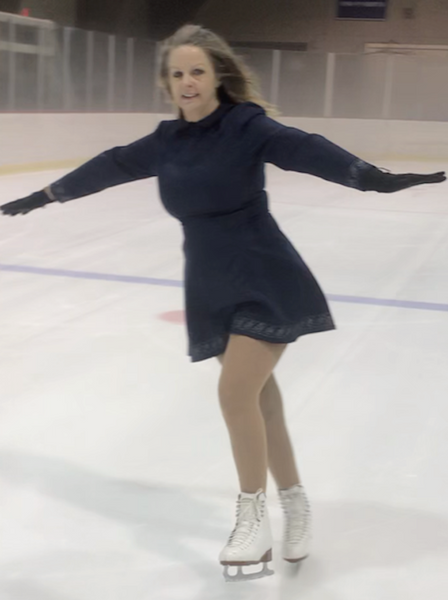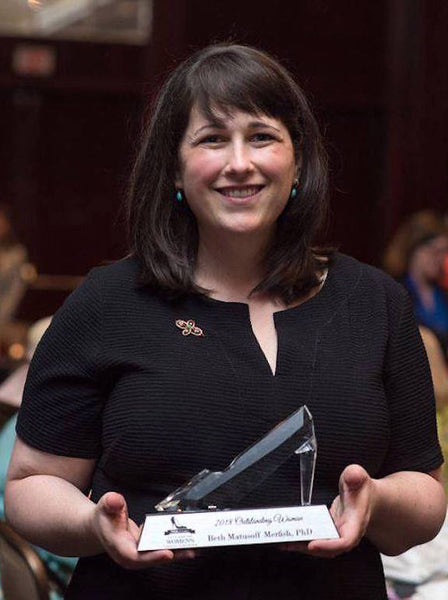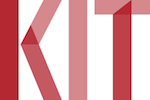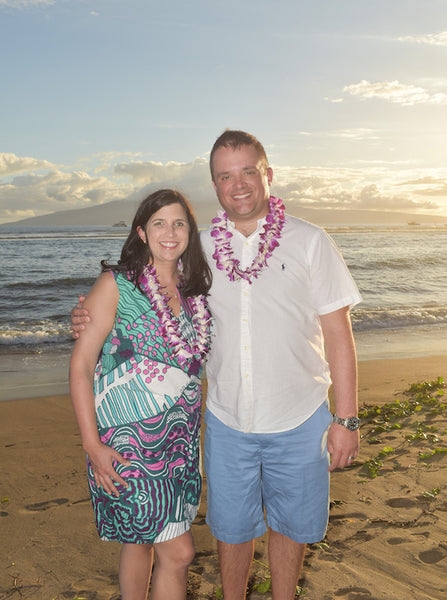Interview: Terrell Fuller

Tell us a bit about yourself: how would you describe yourself and your life in a quick snapshot?
I’m a bubbly, creative thinker who has a passion for the avant-garde… but also a fiercely rational side. Half rational, half creative, with the creative normally winning in the end.
I grew up in Washington, DC, in the District – a major point of pride – and went to an all girls high school and then Kenyon College, where I majored in English and Creative Writing with a minor in Classical History. After college, I spent a year in Boston with Americorps teaching in inner city schools in a 3rd grade classroom. I worked for the federal government in DC after that, and I thought I was going to be a lawyer. I worked at the federal tax court for two years and… decided I didn’t want to be a lawyer! I wanted to leverage the creative side a bit more. So I did a ton of informational interviews and ended up in tech and advertising.
If you had to describe yourself using three adjectives, what would they be?
Social, nerdy, and optimistic. I’m a social, optimistic nerd.
When you were a child, what did you want to be when you grew up?
I wanted to be a news anchorwoman.
What was your very first job?
I worked selling patio furniture for a company called Smith & Hawken.
What do you do to occupy your time: work, family, community?
Work-wise, I work at Wunderman, a big advertising agency, part of the WPP network, where I focus mostly on health and pharma advertising, which has been interesting. It’s different than what I’ve traditionally done.
Outside of work, I do a lot of improv – I perform regularly with a company called Company Blood Drive – and I sit on the board of Washington Improv Theater. That’s been a very meaningful community for me. In college, I thought that in order to be a participant in the arts it had to be a full-time career. And as I got older, I was like, “why don’t I just do this for fun?” It’s easy to join a recreational soccer team, but it’s a bit harder to have that hobby on the side in the arts. I try to meet those people who are actively seeking a creative outlet and supporting each other.
And I just started business school. A few things prompted this: I had been working in tech for a long time, where I kept being part of these companies where I felt: “there has to be a way to do this better” and “we can’t be the first people to encounter these issues.” But in tech there is this bootstrap mentality. A lot of the heavy hitters in tech didn’t finish college and there is this aversion to book learning. Yet, as a manager, I saw this microcosm of tech as a whole and its dysfunction, and thought that maybe the solution is learning from other places, looking to new strategies.
It’s something I went back and forth on a lot. I took the GMAT four or five years ago. There are plenty of companies started by people who didn’t attend business school, but the places where those people stumble tend to be management: the things you learn in business school.
I’m one of those people with big plans and big visions, and learning how to harness that and tap into that is important. Towards the end I started getting to the point where I realized that I would have an edge with a few more letters behind my name.
What are the hardest decisions you’ve had to make?
I would say deciding not to be a lawyer. It was a defining moment. At the time it was the path of least resistance. And making that choice to say, “this isn’t a good fit and I want to do something different” is hard when you’re 25. It’s a way to redefine yourself. I honestly haven’t made that many hard decisions in my life.
Tell us about any mentors or figures that are crucial to how you see the world or what you’ve chosen to do.
In terms of mentors, as sappy as it is, my mom has been one of the best examples I’ve had. As I’ve gotten older I’ve realized what an asset it has been to have a working mother – an example of a woman who works, has a social life, and has a family. That’s really different than a lot of people I know who are trying to start that journey and are like, “how do I do that.” That’s been pretty instrumental to me.
I’m also pretty lucky to have a nice community of business peers that I’ve been able to reach out to over the years, particularly other project managers with whom you can talk best practices in a non-confrontational way. Particularly when you’re starting something and you know you’re going to make mistakes, having people who can share their lessons learned is invaluable.
What do you consider to be your greatest success thus far?
I think about a lot of little things. And, as cheesy as it is, getting into business school is a big deal for me. That’s what’s standing out to me. I worked really hard at studying for the GMAT; that required a lot of sacrifice and getting in was a big deal. That’s honestly one of my big successes.
Some of the projects I’ve worked on have won awards. But mostly I think of the intangibles: having a great community, having a really wonderful group of friends – those things are really important to me.
I did have this goal of trying to go to 30 countries before I was 30, which is a strange goal, but I met it and it was important to me.
What has been your greatest failure and what did you learn from it?
I feel like I’ve learned from a lot of things! I think many of the failures are things where I tended to say ‘yes’ to as opposed to ‘no’. One of the tougher lessons I’ve learned is when I have to set my boundaries.
I found myself in a job where I was working 70 hours a week and, in the end, it just didn’t pay off. I realized that I couldn’t work those hours and stay sane; I have to say no to that. That came with a pretty terrible learning curve, especially early in my career. I failed at knowing my own burnout rate. And you learn your own burnout rate only after you’ve burned out.
Where do you see yourself in 10 or 20 years?
I see myself in DC – the city that I absolutely love – probably working for a private company, on their management side. One thing I’ve been enjoying learning about is leadership and what it means to be a good manager. It’s a very valuable skill; I think everyone understands what a bad manager is, but very few know what a good manager is. I want to be a good manager.
What is the top item on your bucket list – something you’d love to do but haven’t yet?
I always thought it would be cool to get my captain’s license. And I would love to be fluent in another language, so I’ve been trying to learn French. So maybe in five years I’ll be sailing some place where they speak French!
Describe your personal style: how does it reflect your day to day and your values?
I have kind of two different thoughts about this. I always think of my personal style as being preppy with a bit of an edge. I always like to stand out. As someone in marketing, how you present yourself is important. And we can try to disregard that, but it’s what people see right away. The other thing is that I’ve now built this “superman wardrobe” – I pretty much rotate a bunch of dresses. Easy, professional, and I feel comfortable without having to think through parts and matching.
If you ran into your 18-year old self, what advice would you give her?
I would try to give her the gift of perspective: “None of this is going to matter as much as you think it does now.”
Leave a comment
Comments will be approved before showing up.
Also in Voices

Edition 4: The Vintage Ice Skating Dress


